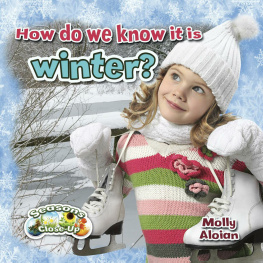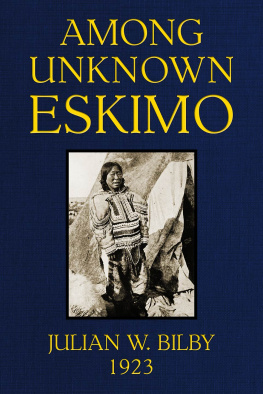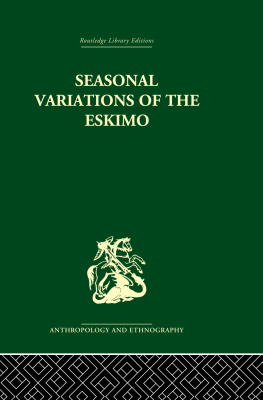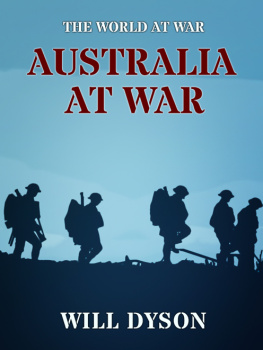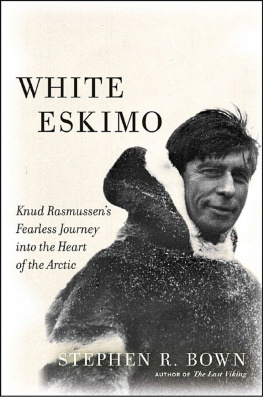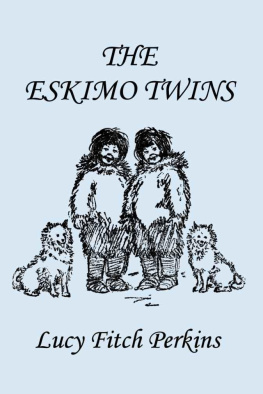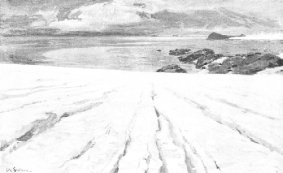Forone whole winter we were cut off from the world and immured among theGreenlanders. I dwelt in their huts, took part in their hunting, andtried, as well as I could, to live their life and learn theirlanguage. But one winter, unfortunately, is far too short a time inwhich to attain a thorough knowledge of so peculiar a people, itscivilisation, and its ways of thoughtthat would require years ofpatient study. Nevertheless, I have tried in this book to record theimpressions made upon me by the Eskimo and his polity, and havesought, as far as possible, to support them by quotations from formerauthors. There may even be things which a newcomer sees more clearlythan an observer of many years standing, who lives in their midst.
Onmany points, perhaps, the reader may not think as I do. I cannot, itis true, find that whatever is is very good; I am weak enough to feelcompassion for a declining race, which is perhaps beyond all help,since it is already stung with the venom of our civilisation. But Icomfort myself with the thought that at least no words of mine canmake the lot of this people worse than it is, and I hope that thereader will accept my observations in the spirit in which they arewritten. AmicusPlato, amicus Socrates, magis amica veritas thetruth before everything. And if in some points I should appearunreasonable, I must plead as my excuse that it is scarcely possibleto live for any time among these people without conceiving anaffection for themfor that, one winter is more than enough.
Duringthe long, dark evenings, as I sat in the low earth-huts and gazed atthe flame of the train-oil lamps, I had ample time for reflection. Itoften seemed to me that I could see these hardy children of Naturepressing westward, stage by stage, in their dog-sledges and in theirwonderful skin-canoes, along the barren ice-coasts; I saw how theyfought their way onward, and, little by little, perfected theiringenious implements and attained their masterly skill in the chase.Hundreds, nay thousands, of years passed, tribe after tribesuccumbed, while other and stronger stocks survivedand I wasfilled with admiration for a people which had emerged victorious fromthe struggle with such inhospitable natural surroundings.
Butin melancholy contrast to this inspiriting picture of the past, thepresent and the future rose before my eyesa sad, a hopeless mist.
InGreenland the Eskimos fell in with Europeans. First it was ourNorwegian forefathers of the olden times; them they graduallyovercame. But we returned to the charge, this time bringing with usChristianity and the products of civilisation; then they succumbed,and are sinking ever lower and lower. The world passes on with apitying shrug of the shoulders.
Whatmore can one say? Whos a penny the worse
Thougha beggar be dead?
Butthis people, too, has its feelings, like others; it, too, rejoices inlife and Nature, and bleeds under our iron heel. If anyone doubtsthis, let him observe their sympathy with one another, and their lovefor their children; or let him read their legends.
WheneverI saw instances of the suffering and misery which we have broughtupon them, that remnant of a sense of justice which is still to befound in most of us stirred me to indignation, and I was filled witha burning desire to send the truth reverberating over the wholeworld. Were it once brought home to them, I thought, people could notbut awaken from their indifference, and at once make good the wrongthey had done.
Poordreamer! You have nothing to say which has not been better saidbefore. The hapless lot of the Greenlanders, as well as of othernative races, has been set forth on many hands, and alwayswithout avail.
But,none the less, I felt I must unburden my conscience; it seemed to mea sacred duty to add my protest to the rest. My pen, unhappily, isall too feeble: what I feel most deeply I have failed to express:never have I longed more intensely for a poets gifts. I know verywell that my voice, too, will be as a cry sent forth over a flatexpanse of desert, without even mountains to echo it back. My onlyhope is to awaken here and there a feeling of sympathy with theEskimos and of sorrow for their destiny.
GREENLANDAND THE ESKIMO
Greenlandis in a peculiar manner associated with Norway and with theNorwegians. Our forefathers were the first Europeans who found theirway to its shores. In their open vessels the old Vikings made theirdaring voyages, through tempests and drift-ice, to this distant landof snows, settled there throughout several centuries, and added it tothe domain of the Norwegian crown.
Afterthe memory of its existence had practically passed away, it was againone of our countrymen who, on behalf of a Norwegian company, founded the second Europeansettlement of the country.
Itis poor, this land of the Eskimo, which we have taken from him; ithas neither timber nor gold to offer usit is naked, lonely, likeno other land inhabited of man. But in all its naked poverty, howbeautiful it is! If Norway is glorious, Greenland is in truth no lessso. When one has once seen it, how dear to him is its recollection! Ido not know if others feel as I do, but for me it is touched with allthe dream-like beauty of the fairyland of my childish imagination. Itseems as though I there found our own Norwegian scenery repeated instill nobler, purer forms.
Itis strong and wild, this Nature, like a saga of antiquity carven inice and stone, yet with moods of lyric delicacy and refinement. It islike cold steel with the shimmering colours of a sunlit cloud playingthrough it.
WhenI see glaciers and ice-mountains, my thoughts fly to Greenland wherethe glaciers are vaster than anywhere else, where the ice-mountainsjut into a sea covered with icebergs and drift-ice. When I hear loudencomiums on the progress of our society, its great men and theirgreat deeds, my thoughts revert to the boundless snow-fieldsstretching white and serene in an unbroken sweep from sea to sea,high over what have once been fruitful valleys and mountains. Someday, perhaps, a similar snow-field will cover us all.
THEBOUNDLESS SNOW-FIELDS STRETCHING CALM AND WHITE FROM SEA TO SEA
Everythingin Greenland is simple and greatwhite snow, blue ice, naked, blackrocks and peaks, and dark stormy sea. When I see the sun sink glowinginto the waves, it recalls to me the Greenland sunsets, with theislets and rocks floating, as it were, on the burnished surface ofthe smooth, softly-heaving sea, while inland the peaks rise row onrow, flushing in the evening light. And sometimes when I see thester-life at home and watch the ster-girls and the grazing cows, I think ofthe tent-life and the reindeer-herds on the Greenland fiords anduplands; I think of the screaming ptarmigan, the moors andwillow-copses, the lakes and valleys in among the mountains where theEskimo lives through his brief summer.
Butlike nothing else is the Greenland winter-night with its flamingnorthern lights; it is Natures own mystic spirit-dance.
Strangeis the power which this land exercises over the mind; but the racethat inhabits it is not less remarkable than the land itself.
TheEskimo, more than anyone else, belongs to the coast and the sea. Hedwells by the sea, upon it he seeks his subsistence, it gives him allthe necessaries of his life, over it he makes all his journeys,whether in his skin-canoes in summer, or in his dog-sledges when itis ice-bound in winter. The sea is thus the strongest influence inthe life of the Eskimo; what wonder, then, if his soul reflects itsmoods? His mind changes with the seagrave in the storm; insunshine and calm full of unfettered glee. He is a child of the sea,thoughtlessly gay like the playful wavelet, but sometimes dark as thefoaming tempest. One feeling chases another from his childlike mindas rapidly as, when the storm has died down, the billows sink torest, and the very memory of it has passed away.


